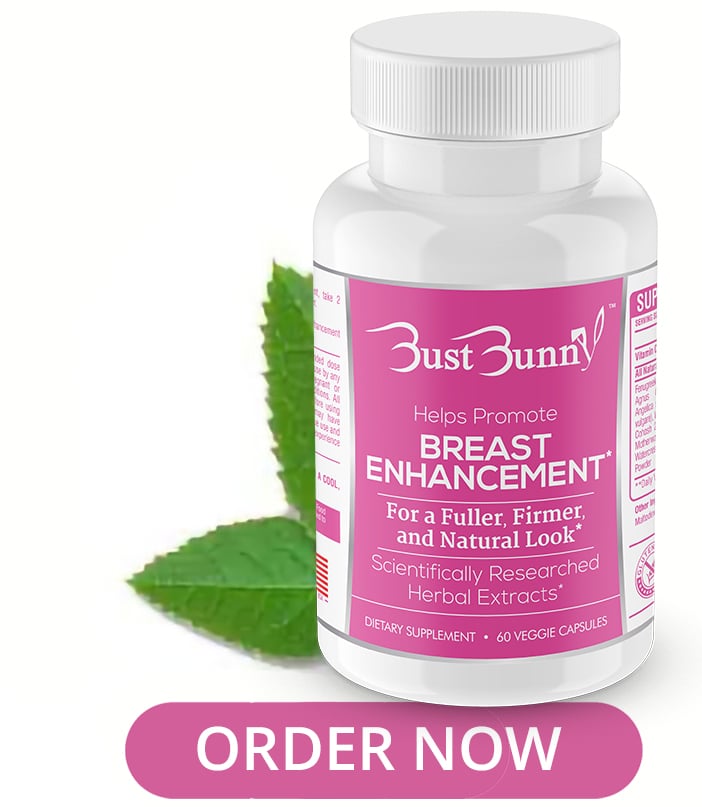A hormonal imbalance is a condition in which the levels of one or more hormones in the body are too high or too low. This body’s chemical messengers help regulate many important bodily functions.
Understanding and effectively treating hormonal imbalances is a complex but crucial aspect of maintaining optimal health.
In this guide, we’ll look into:
- Complexities of hormonal imbalances
- Impact of hormonal imbalances on physical and emotional well-being
- The best treatment for hormonal imbalances, such as natural and alternative options
Understanding Hormonal Imbalances and Their Effects
Hormonal imbalances are the ultimate mood swing party in your body. They can cause irregular periods, breast tenderness, loss of muscle mass, and bone density.
Blame it on conditions like hypogonadism, which decides to start producing sex hormones during puberty. These chemical messengers are like the divas of our body, controlling growth, development, and even our mood.
Recognizing the Signs of Hormonal Imbalance
Managing hormonal imbalances starts with recognizing the signs. Be aware of potential indications such as:
- Exhaustion
- Unexpected weight gain or loss without altering diet or exercise habits
- Slow or rapid heartbeat
- Higher-than-normal blood cholesterol levels
- Emotional outbursts that can leave you questioning your mental state
To help you out, Northwell Health will show you a comprehensive list of symptoms.
The Role of Hormones in Bodily Functions
- Growth: Growth hormone (GH) is the body’s personal cell reproduction and regeneration cheerleader.
- Mood Regulation: Serotonin keeps your mood in check and your sleep-wake cycles on track, while dopamine is the key player in the motivation and reward system.
- Bone Health: Estrogen is the superhero that maintains bone strength and saves post-menopausal women from the clutches of osteoporosis. Learn more about estrogen’s impact on bone health here.
Comprehending the cause of endocrine system irregularities is essential for managing our condition and enhancing our well-being. If you suspect any signs of hormone disorders, it is always best to consult a healthcare provider to get the care you need.
Diagnosing Hormonal Imbalance
Hormonal imbalances can mess up your life. To fix it, you need an accurate diagnosis. Get your hormone levels checked with blood tests or home testing kits. No, not the kind you use to test if your cookies are done.
Importance of Accurate Diagnosis
An accurate diagnosis is crucial. It’s like finding the root cause of a bad hair day. It helps healthcare providers prescribe the right treatment. Misdiagnosis is like attempting to mend a shattered heart with an inappropriate tool – it’s futile.
Methods to Diagnose Hormonal Imbalances
Here are ways how to diagnose hormonal imbalance:
- Blood Tests: Doctors love these tests. They give detailed info on your hormone levels. It’s like a hormone report card.
- Saliva Testing: Some pros prefer this method. It measures hormone levels more accurately than blood tests. Spit, don’t bleed.
- Pellet Testing: This method is for the long haul. It monitors hormone levels over months, like a hormonal road trip.
There are also at-home test kits available. They’re like DIY hormone detectives. But remember, they’re no substitute for professional advice. Consult a qualified healthcare provider. Don’t be a hormone cowboy.
Remember, early detection is key to managing hormonal imbalances. Don’t let your hormones run wild.
Signs and Symptoms of Hormonal Imbalance
The signs and symptoms of hormonal imbalance can vary depending on the specific hormone or hormones that are out of balance. Some common symptoms include:
Skin Issues
Imbalances in hormone levels can wreak havoc on your skin. One major culprit is acne, thanks to those pesky hormones messing with oil production. Fluctuating estrogen and progesterone can turn your face into an oil slick, clogging pores and causing acne breakouts.
PCOS and Pregnancy
PCOS, another hormonal imbalance, can cause severe disruption to the menstrual cycle and fertility problems or pregnancy complications. With PCOS, your body goes into overdrive, producing male hormones. This will mess with your menstrual cycle and cause fertility issues or even pregnancy complications.
Remember, ladies with PCOS need to team up with their healthcare providers to manage these risks.
Oily Skin and Acne
Hormones can also wreak havoc on your external appearance, not just internally. Excess oil production caused by these imbalances leads to not only acne but also other skin woes like oily skin and dandruff. Dermatologists suggest using products with salicylic acid or benzoyl peroxide and chowing down on antioxidant-rich fruits and veggies to fight back.
Hormonal balance is key to both inner and outer beauty. So, let’s give our bodies the TLC they deserve from the inside out.
Hair Loss
Who knew hormones could mess with your hair? Hormonal imbalance not only affects your looks but also your self-esteem and mental health. Talk about a bad hair day.
Male Pattern Baldness
Gents, if you’re thinning on top, it’s likely due to androgen levels that are lower than the odds of scoring big in the lottery. Studies show that when these hormones take a nosedive, your hair follows suit. Say hello to the bald life.
Forget about magic potions and unicorn tears. For a more effective approach to hair loss, consider a diet rich in vitamins B12, D, and E, as well as minerals such as zinc, selenium, and iron. Plus, include supplements like saw palmetto and nettle root extract, which may help inhibit the production of DHT.
Oh, and don’t forget the supplements with fancy names like saw palmetto and nettle root extract. They claim to block DHT production and save your precious follicles. Just remember to consult the healthcare provider before diving into the supplement world.
Female Post-Menopausal Acne
Ladies, hormonal imbalances like PCOS can give you a double whammy of acne and hair loss after menopause. Your estrogen levels go haywire, causing pimples to pop up like mushrooms while your hair bids farewell. Mayo Clinic reports this sad reality.
When it comes to managing these hormone-related challenges, keep the conversation going with your healthcare providers. They’re the experts who can help you navigate this hairy situation.
Trust them to treat your body as a whole, using acupuncture, biofeedback, and other mind-spirit healing techniques. It’s all about that full patient-care model.
Common Treatments for Hormonal Imbalance
Hormonal imbalances can mess with your mojo. But fear not. There are treatments that can help you get back in balance and feel fabulous.
Hormone replacement therapy
So, how does hormone therapy work?
Hormone Replacement Therapy (HRT) is like a superhero for your hormones. It involves taking medications with female hormones to replace the ones your body stops making after menopause. Say goodbye to hot flashes and hello to relief.
Non-hormonal pharmaceuticals
For those looking for a non-hormonal solution, metformin is an effective pharmaceutical option. Take metformin, for example. It’s a non-hormonal pharmaceutical that can help with conditions like Polycystic Ovary Syndrome (PCOS). It works by improving insulin levels and getting your menstrual cycle back on track.
And for those lacking in the desired department, testosterone supplements might be the answer. HRT can be a savior for those dealing with low libido due to testosterone levels, providing an upsurge in the desired department. Plus, hormonal birth control methods like pills or patches can help regulate your menstrual cycle and ease those pesky symptoms.
Plant-Based Herbal Supplements
Say hello to plant-based herbal supplements. These natural remedies are like superheroes, fighting off discomfort from menopause and PMS with their hormone-regulating powers.
Awesome Ingredients for Menopause & PMS Relief
Prepare to be amazed by the incredible herbs on this list, such as:
- Maca – Maca, a root vegetable from Peru, is an adaptogen that helps the body with stress. It’s also a mood booster and blood pressure buster.
- Red clover – It’s another superstar herb. Its isoflavones can mimic estrogen, giving you sweet relief from those pesky hot flashes during menopause.
- Ginger – It’s here to save the day too. With its anti-inflammatory powers, it kicks menstrual pain to the curb.
- Ashwagandha – This is the superhero of thyroid hormones. It balances T4 levels, making it a formidable foe against hypothyroidism.
Above all, Ashwagandha, the Indian ginseng, is a true legend. It can lower cortisol levels, the stress hormone, and help you fight anxiety and depression. Plus, it’s a brain booster, muscle builder, and strength enhancer. Research studies have confirmed its awesomeness.
Ready to embrace these plant-based heroes? Bust Bunny has a Hormonal Balance product that consists of all of the natural ingredients, plus it has Vitamin E.
This provides relief from hormonal balance symptoms such as cramps, PMS, menopause, and HRT (Hormone Replacement Therapy). Get it here!
Vitamin E
Vitamin E is like the superhero of nutrients, fighting off free radicals and reducing inflammation to help maintain hormonal balance. It’s antioxidant power at its finest.
Vitamin E – The Inflammation Fighter
When it comes to hormonal imbalances, inflammation is the enemy. But fear not; vitamin E is here to save the day. It neutralizes those pesky free radicals and keeps your body in tip-top shape. Almonds, spinach, and supplements are your sidekicks in this battle.
Shatavari & Black Cohosh – The Dynamic Duo
Shatavari, the Ayurvedic wonder herb, knows how to regulate estrogen levels and ease menopausal symptoms. It’s like a natural hormone whisperer.
And then we have Black Cohosh, the plant extract with phytoestrogens that mimic the real deal. It’s like having your own estrogen backup squad.
So, take charge of your hormonal health by adding these nutrients to your diet, exercising regularly, and managing stress. Your body will thank you.
Maintaining Open Dialogue With Healthcare Providers
It’s crucial to keep the convo going with your healthcare peeps, especially endocrinologists and gynecologists. These experts know their stuff when it comes to tackling hormonal imbalances. They’re all about treating the whole body, using cool techniques like acupuncture and biofeedback, and recognizing the mind-spirit connection.
But wait, there’s more. They’re not just into traditional medicine. They’re also down with holistic wellness approaches that can help you manage hormonal imbalance symptoms like a boss. So, if you’re dealing with wonky periods or tender ta-tas, they can hook you up with treatments that fit your needs.
And hey, don’t forget to spill the tea on any natural remedies or supplements you’re considering. Like those herbal breast enhancement products, such as Bust Bunny Breast Enhancement, that use 13 essential botanicals to help promote natural breast growth.
Your healthcare provider can tell you whether these supplements play nicely with your current treatments. So, keep it real and spill the deets about your whole health regimen when talking to them about hormonal imbalances.
FAQs About Treatment for Hormonal Imbalances
What is the best treatment for hormonal imbalance?
The most effective treatment depends on the individual’s symptoms but often includes Hormone Replacement Therapy, lifestyle changes, and herbal supplements.
What are the 5 hormonal imbalances?
The five common types include insulin resistance, Polycystic Ovary Syndrome (PCOS), low testosterone, hyperthyroidism, and hypothyroidism. Find out more information in this Cleveland Clinic article.
Who can treat hormone imbalance?
Hormonal imbalances can be treated by endocrinologists, gynecologists, naturopaths, and other healthcare providers who specialize in hormone health.
Do gynecologists treat hormone imbalance?
Gynecologists do indeed treat certain types of hormone imbalances, such as PCOS and menopausal symptoms.
Conclusion
Hormones are no joke! That’s why understanding hormone imbalances and their impact on the body is key to effective treatment.
Let’s get those hormones back in line!


